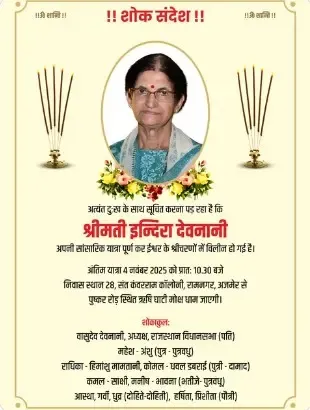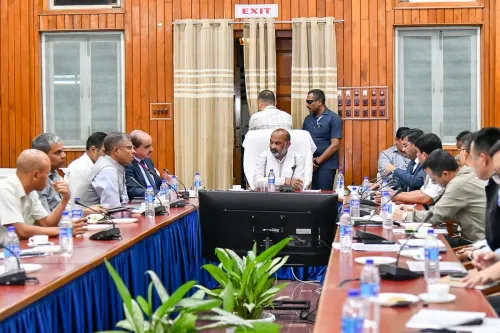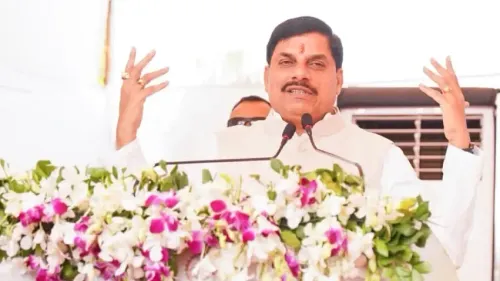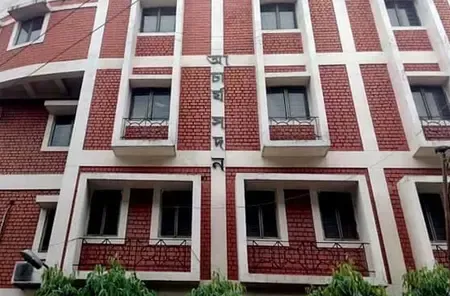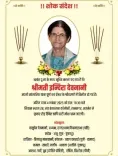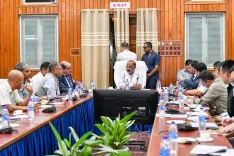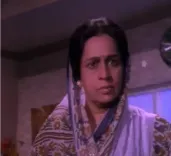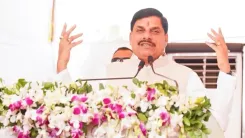Is Stalin Rallying Opposition States Against the Centre's Presidential Reference on Governor's Powers?
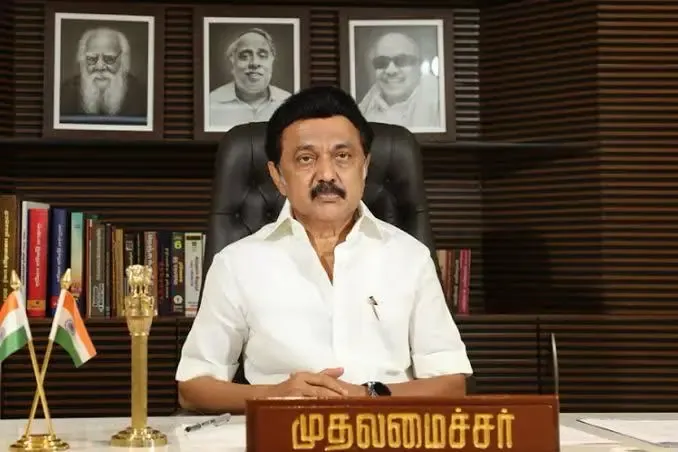
Synopsis
Key Takeaways
- Stalin's letter emphasizes the need for opposition unity.
- The Presidential reference raises concerns about state autonomy.
- The Supreme Court ruling is seen as a victory for federalism.
- Governors' roles are under scrutiny regarding political interference.
- Immediate action is urged to protect constitutional integrity.
Chennai, May 18 (NationPress) In a pointed critique of what he perceives as an effort to weaken India's federal structure, Tamil Nadu Chief Minister M.K. Stalin has reached out to the Chief Ministers of eight states not governed by the BJP, imploring them to present a unified front against the Union Government’s recent Presidential reference to the Supreme Court under Article 143.
In his correspondence, Stalin specifically addressed the Chief Ministers of West Bengal, Karnataka, Kerala, Himachal Pradesh, Telangana, Jharkhand, Punjab, and the Jammu and Kashmir administration, advocating for a coordinated opposition to what he labeled a “legal challenge to state autonomy.”
The Presidential reference, initiated by the Union Government on May 13, seeks the Supreme Court’s guidance on several constitutional issues following the pivotal judgment in State of Tamil Nadu vs Governor of Tamil Nadu. This ruling, widely celebrated as a triumph for federalism, reaffirmed that Governors must act according to the counsel of the elected state Cabinet.
Referring to the verdict as “historic,” Stalin emphasized that it decisively invalidated practices such as indefinite delays in granting assent to Bills, arbitrary withholding of assent, and prolonged inactivity regarding legislation passed by state Assemblies. He contended that the Centre’s recent action—while not directly naming the Tamil Nadu case—is evidently designed to undermine that judicial decision.
“The reference is a disguised effort by the BJP-led Union Government to challenge the Supreme Court’s ruling through the advisory authority of the President,” Stalin stated. The DMK President further accused the Centre of exploiting Governors as political pawns to meddle in state affairs—from obstructing legislation and appointments to disrupting university management—especially in opposition-led states.
Stalin called for the establishment of a cohesive legal and political strategy to safeguard the core structure of the Constitution. “It is crucial that all democratic entities dedicated to constitutional federalism unite in consultation and collaboration,” he asserted, urging for an immediate reaction to what he described as a perilous precedent.

